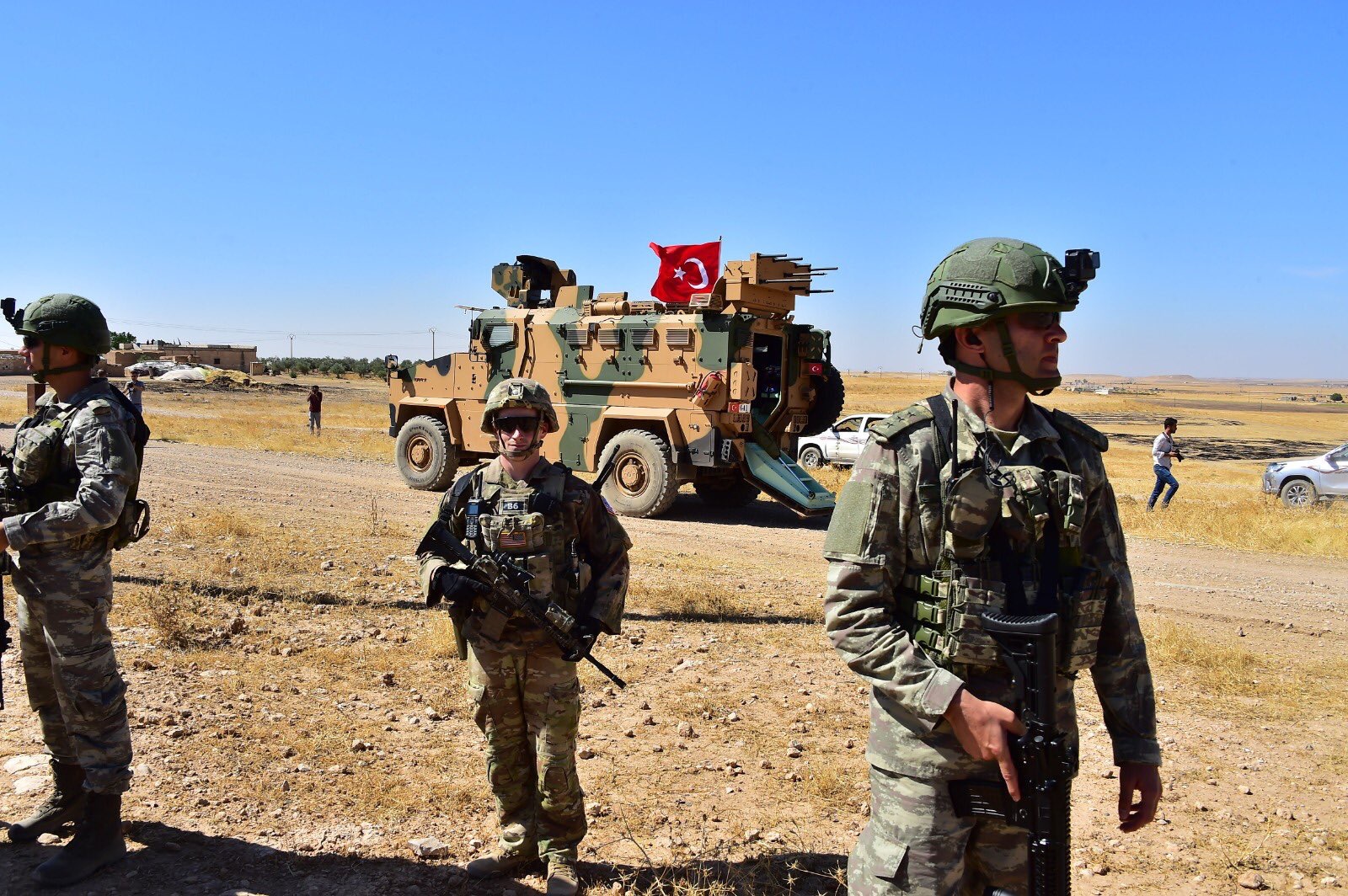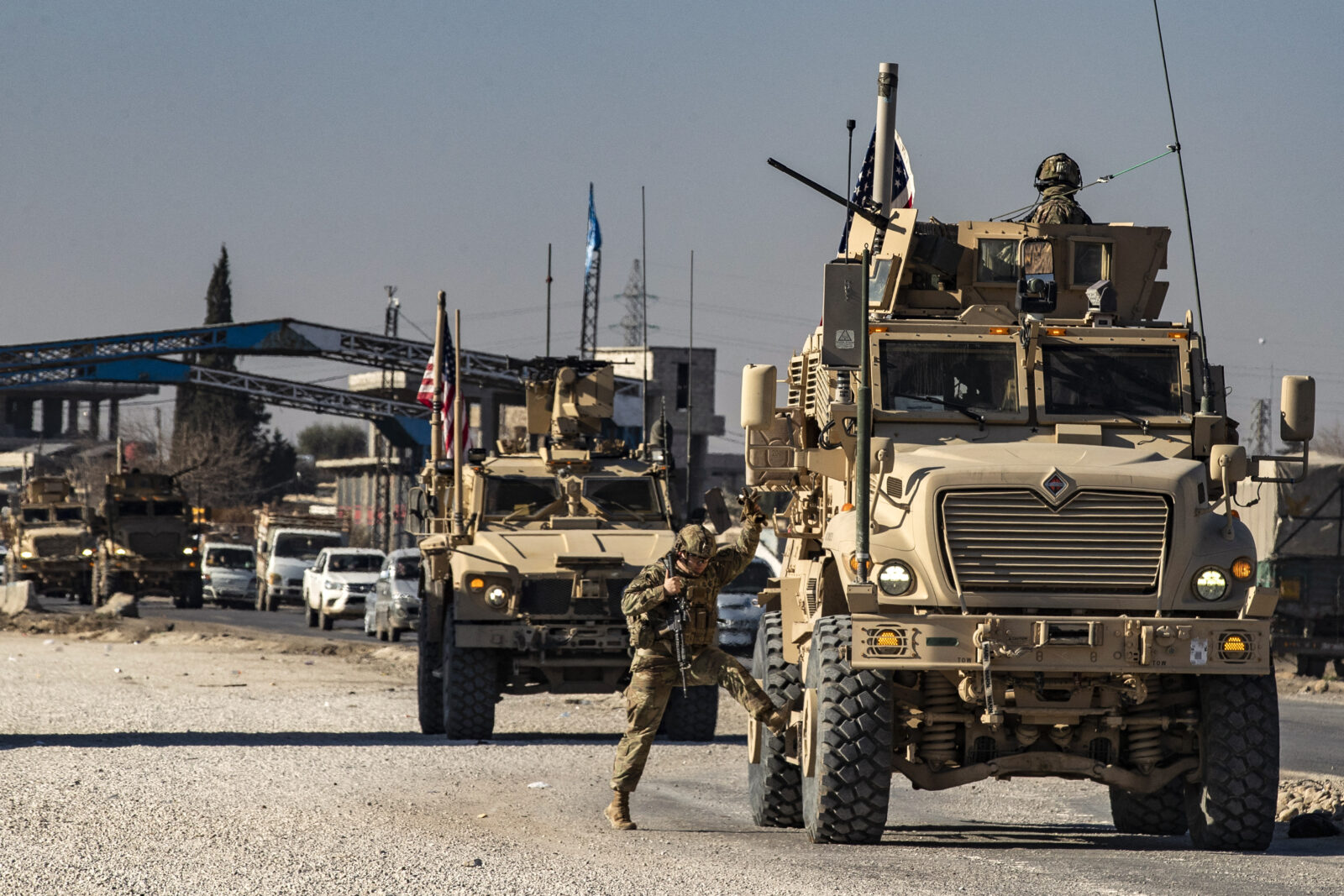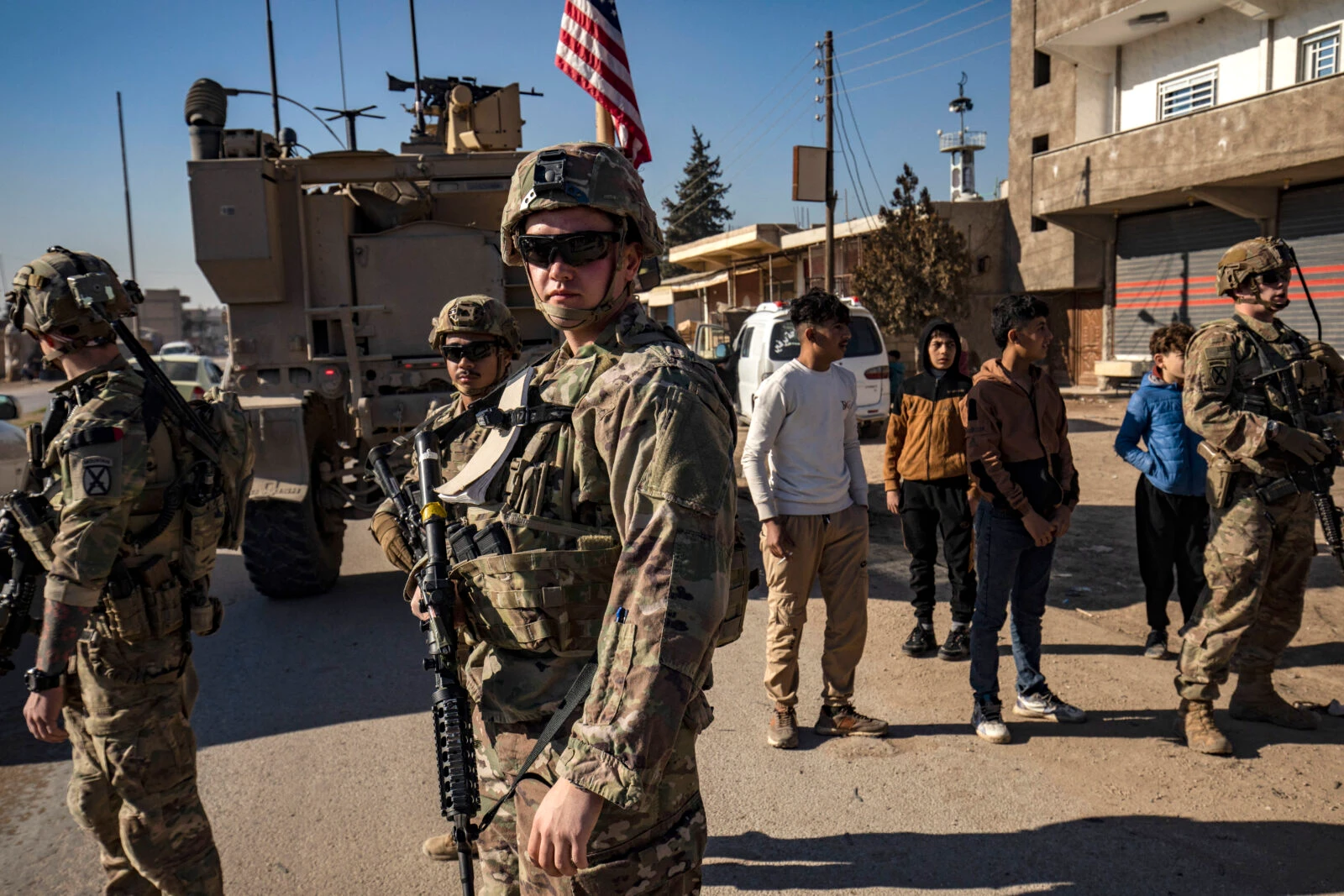Will US withdraw from Syria? Expert calls it ‘symbolic’
 A US soldier holds a dog as forces patrol in Syria's northeastern city Qamishli, in the al-Hasakah province, on Jan. 9, 2025 (AFP Photo)
A US soldier holds a dog as forces patrol in Syria's northeastern city Qamishli, in the al-Hasakah province, on Jan. 9, 2025 (AFP Photo)
As speculation grows over whether the United States will withdraw troops from Syria, speaking to the Türkiye daily, former Turkish Air Force Intelligence Director Col. Gursel Tokmakoglu suggested that any pullout would be largely symbolic, given the ongoing presence of U.S. Central Command (CENTCOM) in the region.
Reports from Washington indicate that U.S. President Donald Trump had instructed the Pentagon to draft a plan for a full military withdrawal from Syria.
However, experts believe that U.S. involvement in Syria’s security and regional strategy remains intact despite potential troop movements.

CENTCOM’s role in region
Tokmakoglu stated that he does not expect a full withdrawal from Syria.
“CENTCOM remains active in the region, with military forces inside and outside Syria. It can deploy troops, aircraft, and naval assets as needed. The current situation in Syria is backed by the U.S., and the future of this support remains uncertain,” he explained.
The retired colonel also noted that the Syrian military is undergoing changes, with previously excluded groups integrating into the national army. He suggested that Türkiye may provide support to Syria’s restructured forces.
Meanwhile, last month, CENTCOM conducted assessments in Iraq, Syria, and even Israeli-occupied territories in Syria before submitting a report to Trump, the details of which remain undisclosed.

Geopolitical implications of US withdrawal
Tokmakoglu emphasized the broader geopolitical context, highlighting the involvement of the U.S., U.K., France, Israel, Greece, and the Greek Cypriot Administration in the region’s military and energy affairs.
“The timeline began on October 7, 2023, and since then, we have seen shifts in Lebanon, the Golan Heights, and Syria’s leadership. At the same time, U.S. energy giant ExxonMobil has started drilling operations in disputed waters in the Eastern Mediterranean,” he said.
He also pointed to BP’s planned investments in Iraq and the Eastern Mediterranean, indicating that the region is being reshaped around energy routes.
“When we analyze the broader picture, the idea of the U.S. completely withdrawing from Syria loses credibility. We must consider all the systems contributing to this atmosphere,” Tokmakoglu concluded.

Türkiye’s position on the Syria conflict
Regarding Türkiye’s stance, Tokmakoglu noted that Ankara has consistently rejected terrorism along its borders and has coordinated with Damascus on security matters.
“The U.S. says it will leave, but we don’t know what it will leave behind or take with it. The political map of Syria remains uncertain, and treating Syria as a newly established country is a mistake,” he warned.
He also pointed out that multiple international actors—including the U.S., Israel, and energy-focused geopolitical alliances—are advancing their own interests in the region, complicating any potential American disengagement.



